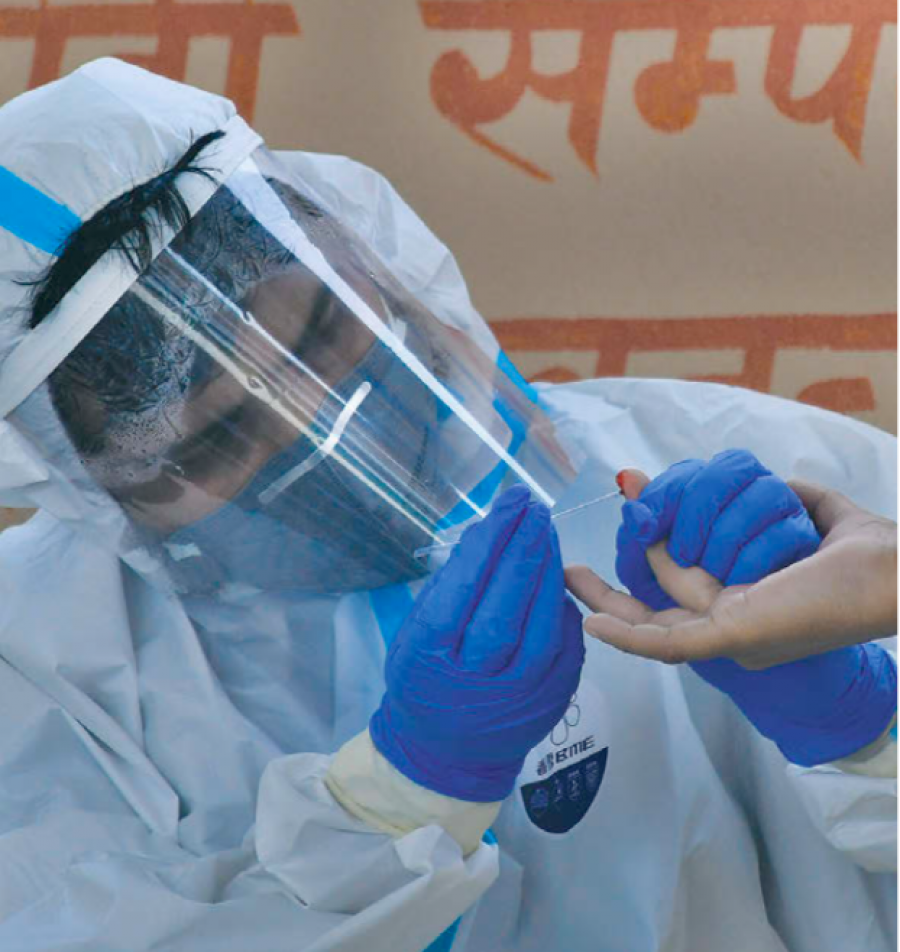Health
Contact tracing is getting complicated as test subjects are not providing genuine personal details
Stigma surrounding the Covid-19, most likely exacerbated by the incidents of discrimination faced by patients from their landlords and neighbours, has caused the people to give false information, officials say.
Arjun Poudel
Many people infected with the coronavirus have been found to have been giving false personal details, like their addresses and phone numbers, to the authorities which has created a challenge in contact tracing and raised the risk of community transfer, officials say.
The stigma surrounding the Covid-19, most likely exacerbated by the incidents of discrimination faced by patients from their landolords and neighbours, has led to the coronavirus test subjects to give false information about themselves, according to officials at the Epidemiology and Disease Control Division.
"We are facing difficulty tracing contacts of the infected people. Many people are not providing their genuine addresses when they are undergoing tests," Dr Basudev Pandey, director at the division, told the Post.
There have been cases where officials deployed for contact tracing have failed to reach the infected people who have provided false personal details. Pandey says delaying the intervention will not only risk the health of the person in question but also their family members, friends and neighbours.
In Kathmandu Valley, Pandey says several people seeking Covid-19 tests at Sukraraj Tropical and Infectious Disease Hospital in Teku, Bir Hospital and others health facilities have been found either providing false addresses or giving addresses of their hometowns outside the Valley.
Health officials fear the number of infected people might have risen exponentially due to the delay in contact tracing caused by the false addresses.
Lila Bikram Thapa, senior public health administrator at the division, says this problem has been persisting right from the beginning when people entered the country via international flights.
“Many people had registered false addresses and contact numbers at the time of their arrival. The Health Ministry had to seek help from the Foreign Ministry to locate these people, which took several days,” Thapa told the Post.
Thapa reckons that the public at large are unaware about the risk of withholding or distorting one’s personal information when it comes to this disease.
"We have failed to communicate to the public about the risk factors. The knowledge about the disease itself is also apparently lacking, which in turn has caused many people to assume a discriminatory attitude towards those who are infected by the virus or are suspected to have been infected,” Thapa said.
Even health workers have become victims of coronavirus discrimination from their landlords and neighbours.
While some health officials have raised the alarm about the coronavirus unnoticeably spreading in communities, the Health Ministry has maintained that the virus has not spread in communities so far.
"We have not seen community transmission of the virus yet. The ministry has been reviewing the pattern of disease spread," Dr Bikash Devkota, the ministry’s spokesperson, said.
While the task of contact tracing is being conducted by health workers at local units and district health offices in the coronavirus-hit areas, Kathmandu has been wholly relying on the agencies under the Health Ministry for the job.
Both Kathmandu Metropolitan City and Kathmandu District Health Office lack the human resource to carry out contact tracing, according to Narendra Bajracharya, chief at the Health Department of Kathmandu Metropolitan City.
"We need a team, including lab technicians and staff nurses, for contact tracing. As we do not have enough staff, we have been relying on the agencies under the ministry for contact tracing," Bajracharya told the Post.
The Kathmandu District Health Office, meanwhile, has only four staff members and they cannot be deployed for contact tracing even though the number of infected people in Kathmandu is rising.




 9.7°C Kathmandu
9.7°C Kathmandu















